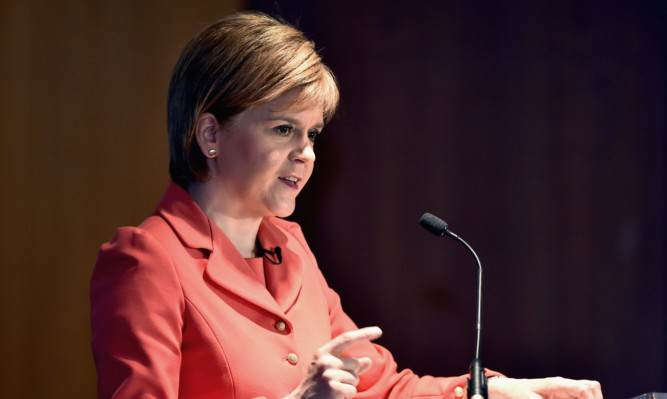Campaigners against the controversial named person policy have challenged the First Minister over “confusing and inaccurate statements” made about the scheme.
Members of the No to Named Persons (No2NP) campaign group say 25,000 people have now signed a petition against the scheme, which is due to come into force across the country in August.
They wrote to Nicola Sturgeon requesting a meeting on April 1 but say they have “not even received the courtesy of an acknowledgement” to their letter.
The named person scheme, which is being brought in as part of the Children and Young People (Scotland) Act, will see every youngster under the age of 18 assigned a single point of contact – such as a teacher or health visitor – to look out for their welfare.
Opponents say these “state guardians” risk intruding into the private lives of families, but the Scottish Government argues the service will act as a safety net to help families and children if they need it.
No2NP spokesman Simon Calvert said: “We all want children to be safeguarded from abuse, and we all want families to have access to the services they need.
“But the named person scheme is not the answer to those problems.
“The First Minister insists it is, and in her attempts to defend the scheme from massive public criticism has made confusing and inaccurate statements.”
Ms Sturgeon has described the scheme as “good and sensible”, but has said parents are not legally obliged to use it.
In March, she told MSPs at Holyrood: “The named person scheme is an entitlement, I think it is a good and sensible entitlement. It is not an obligation.
“It helps children and families get the support they need from services when they need it.
“It does not in any way, shape or form replace or change the role of the parent or carer or undermine families.”
But campaigners fear the scheme could be compulsory, with no ability for parents to opt out.
The letter from No2NP calls on the SNP leader to confirm that “parents, who know what’s best for their children in the vast majority of cases, should have the power not to have their children exposed in any way to the named person scheme”.
The group, which has taken its legal challenge to the scheme all the way to the UK Supreme Court, is also seeking clarification on whether parents can prevent a named person “seeking and sharing confidential data on them and their family”.
Mr Calvert said: “It is very disappointing that we have not even received the courtesy of an acknowledgement. We simply want to bypass the civil servants who have briefed the First Minister so inaccurately.”
He added: “Our petition has more than 25,000 signatories and I am sure they represent many more people who are only now becoming aware of what this scheme means and who are increasingly perturbed about this unacceptable intrusion into family life. Understandably, they want answers from the First Minister.
“With an election looming and this issue assuming increasing importance, I would have hoped the First Minister might have engaged with the campaign and answered our questions.”
Mr Calvert emphasised the campaign group’s support for the Government’s intention to protect children.
An SNP spokesman said: “The First Minister’s office has received this letter and will respond in due course. Under our proposals, the named person will be able to give advice and support at the request of a young person or their parents – but children and parents are not legally obliged to take up the advice or help offered, which is the position the First Minister has set out.
“This policy is about protecting children’s well-being. It is about supporting, not diminishing, the role of parents. The policy is widely supported by leading children’s charities and welfare organisations, as well as by the Scottish Police Federation, who say it will ‘help keep children safer’ – and has also been upheld by the highest court in Scotland, including a ruling which said the policy had ‘no effect whatsoever on the legal, moral or social relationships within the family’.
“The legislation was passed by 103 votes to 0 by the Scottish Parliament, which exposes the utter hypocrisy on this issue from Labour and the Tories, who are now trying to play politics with an issue which at its heart is about child safety.”
